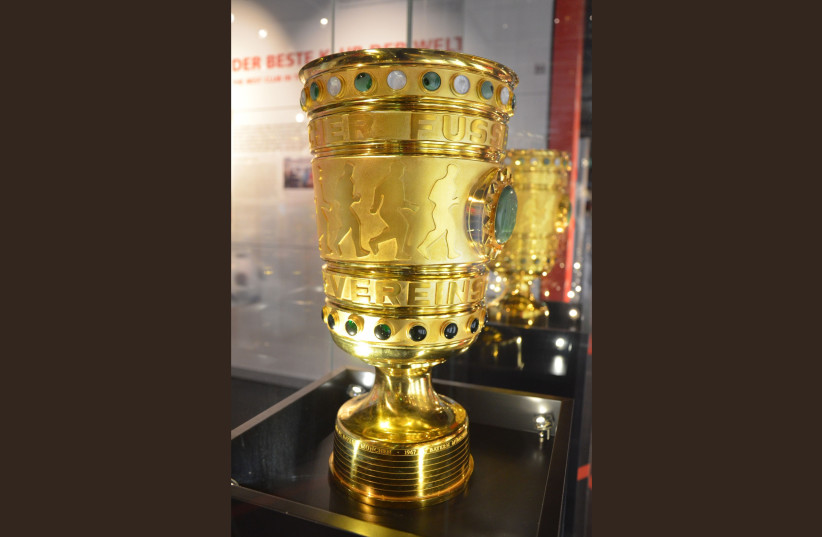TuS Makkabi Berlin, a German sports club with Jewish roots, has achieved an historic feat, with its soccer team qualifying for the first round of the German Cup, also known as the DFB-Pokal. The club, which plays in the fifth division of the German football pyramid, won the Berlin Cup on Saturday after defeating Sparta Lichtenberg, a sixth-tier team, 3-1 in extra time at the Mommsen Stadium.
The match was a thrilling affair, with Sparta taking the lead in the 13th minute through a penalty kick by Daniel Hänsch. Makkabi equalized in the 51st minute thanks to Tim Häußler’s goal. The game remained tied until the end of regulation time, forcing an extra 30 minutes of play.
In the dying minutes of extra time, Makkabi scored two goals to seal their victory and make history. The first one came from an own goal by Sparta’s Lukas Noack in the 118th minute and the second one was a strike by Kiyan Soltanpour in the fifth minute of stoppage time.
In the dying minutes of extra time, Makkabi scored two goals to seal their victory and make history. The first one came from an own goal by Sparta’s Lukas Noack in the 118th minute and the second one was a strike by Kiyan Soltanpour in the fifth minute of stoppage time.
With this win, Makkabi became the first Jewish club ever to participate in the first round of the German Cup, where they will face a team from either the first or second division of the Bundesliga. The draw will take place on June 18, and the first-round matches will be played from August 11 to 14.
The club will also receive a significant financial boost from their cup run, as they are guaranteed to earn almost 210,000 euros from their participation.

TuS Makkabi's Jewish history
Makkabi captain Doron Bruck expressed his joy and pride after the game: “It’s something historic for the club; it’s the first time we’ve come this far. Especially with the story we have here: the club was banned 75 years ago. It means a lot to us to create a sporting sensation with a multicultural team.”
Makkabi was founded in 1970 as a merger of three Jewish sports associations: Bar-Kochba Berlin (gymnastics and athletics), Hakoah Berlin (soccer) and Makkabi Berlin (boxing). The club claims to be the successor of Bar-Kochba Berlin, which was established in 1898 and became one of the largest Jewish organizations in the world by 1930 with over 40,000 members from 24 countries.
However, under Nazi rule, Jewish sports clubs were discriminated against and eventually banned from competing. Makkabi’s predecessor clubs were among those that suffered persecution and repression.
Today, Makkabi has some 500 members and is one of the largest Maccabi associations in Germany. The club promotes dialogue and integration between Jews and non-Jews through sports. The club offers various sports activities such as basketball, judo, swimming, tennis, table tennis, gymnastics, and volleyball.
